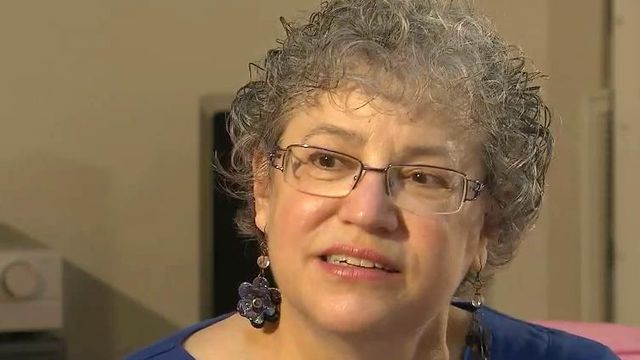NC commissioner: Some homeowner insurance rates 'very much a problem'
Most people think they already pay too much for homeowner's insurance, but what if the bill suddenly jumped 33 percent or even 70 percent? Many people are getting letters saying if they don't agree to it, their coverage will be canceled.
Posted — UpdatedThe letters from insurance companies are going out to hundreds of thousands of people across the state. The state insurance commissioner calls this a problem. Many of the people 5 On Your Side heard from got what's called a "consent to rate" letter and said they feel bullied.
Randi Gordon bought a home in Fuquay-Varina 16 years ago and says she has never filed a claim. So she was shocked by a letter from Travelers insurance, saying her renewal premium would be higher than the maximum rate allowed in the state. If she didn't sign the consent form within 10 days, she'd be dropped.
“Ten days is ridiculous because you don't have a chance really to go and shop around too much within 10 days,” she said. “That’s why I call it holding people hostage.”
Another homeowner, who also never had a claim, received a letter asking for 33 percent more than the state-approved cap. His Liberty Mutual policy went up almost $200 a year.
WRAL found another homeowner who filed two claims totaling $3,600 and faced a 70 percent yearly increase of more than $600.
They all had the same question.
“What is the point of setting rates if the insurance companies can basically ignore them?” Gordon asked.
State law allows insurers to charge up to 250 percent above the maximum rate set by North Carolina Insurance Commissioner Wayne Goodwin.
“Things that are done to force – directly or indirectly – the public to bypass that cap is very frustrating, very much a problem,” he said.
Goodwin says the decades-old law allowing "consent to rate" letters was intended for rare circumstances involving very high-risk customers.
“The reason that insurance companies are using this as their go-to more so than the exception is the insurance companies believe – they allege – they're not allowed to charge enough, and I'm sure that (WRAL) viewers probably have an opinion on that," Goodwin said.
“If insurance companies don't get enough premium to insure the risk, then they don't want to do business here, perhaps,” he said.
Evans reiterates what insurers told 5 On Your Side’s complainants – the higher rates are needed to cover catastrophic losses from storms, such as hurricanes and tornadoes. As for who is most likely to get a "consent to rate" letter, Evans says he thinks each company has its own set of criteria.
“It probably varies a great deal from carrier to carrier,” he said.
Evans says insurers consider risk factors such as how long you've been with the company, whether you have multiple policies, such as home and auto coverage, whether your home is maintained, your credit score and a big one is any claim you make.
Even though policies cover relatively minor claims, file and your insurer may label you high risk, raise your premium or even drop you.
“Something a homeowner needs to keep in mind: Is this a claim worth making in the long run or is it better to hold out use of your insurance for the most catastrophic of claims?” Goodwin said.
To lower your premium, shop around, raise your deductible and bundle your coverage. That's what one customer did, and she saved $700 a year.
As for Gordon, she found a new company, adjusted her policy and saved $278.
It’s important to note that the consent to rate forms do not have an end date. So once you sign it, your insurance company can increase your rate anytime in the future. If you don't sign it, they can drop you. So don't ignore it, do something. Try to negotiate with the company or shop around for a better rate. Always answer letters from insurance companies.
NC homeowner rate filings
• Credits
Copyright 2024 by Capitol Broadcasting Company. All rights reserved. This material may not be published, broadcast, rewritten or redistributed.





